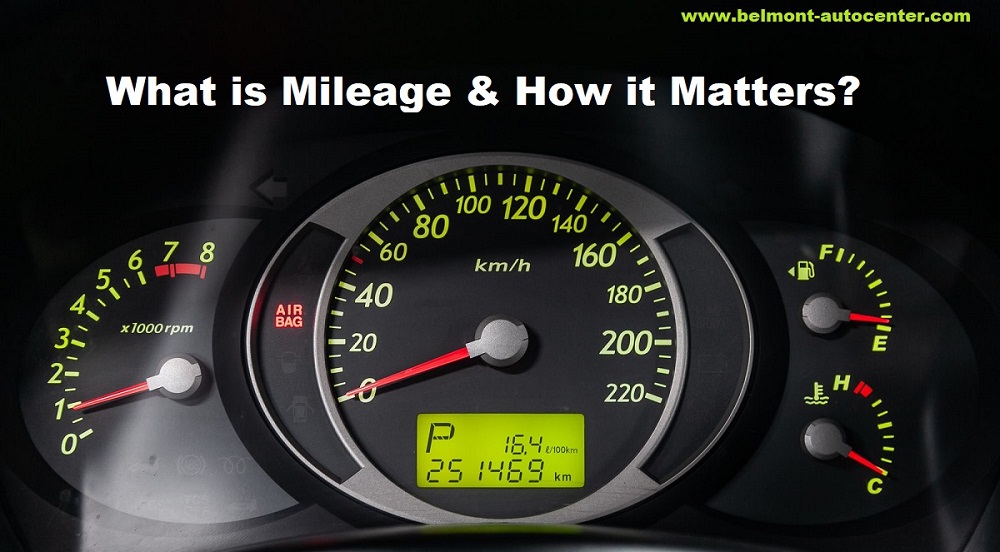Car mileage, often referred to as “miles on a car,” is a fundamental aspect of understanding a vehicle’s history. It represents the total distance traveled by a car since it rolled off the assembly line. This seemingly simple number can reveal a wealth of information about a car’s past use, potential maintenance needs, and overall condition.
This article will delve into the significance of what does mileage on a car mean, exploring its impact on vehicle value, maintenance requirements, and the decision-making process when purchasing a used car. We’ll also examine factors that can influence mileage accumulation and provide guidance on interpreting this crucial metric.
What Is Car Mileage?
What does the mileage mean on a car? Simply put, it’s the cumulative distance traveled by a vehicle since its initial manufacturing. This figure is typically displayed on the odometer, a gauge located on the dashboard that records the number of miles driven. Mileage is measured in miles (mi) or kilometers (km), depending on the region.
The odometer reading provides a snapshot of a car’s history. A higher mileage generally indicates more frequent use and potential wear and tear on various components. Conversely, a lower mileage suggests less usage and potentially better overall condition. However, it’s crucial to remember that mileage alone doesn’t tell the whole story.
Importance of Car Mileage
Understanding what does mileage on a car mean is essential for several reasons:
- Predicting Maintenance Needs: Higher mileage often correlates with increased wear and tear on engine parts, transmission systems, brakes, tires, and other components. A higher mileage vehicle may require more frequent maintenance and repairs.
Assessing Vehicle Condition: While not a definitive indicator, mileage can provide insights into a car’s overall condition. A well-maintained vehicle with high mileage might still be in good shape, while a poorly maintained vehicle with low mileage could have hidden problems.
Determining Value: Mileage significantly influences a used car’s value. Vehicles with lower mileage generally command higher prices due to their perceived lower wear and tear.
- Negotiating Price: When purchasing a used car, understanding the impact of mileage allows you to negotiate a fair price based on the vehicle’s history and potential maintenance costs.
Factors Affecting Car Mileage
Several factors can influence how quickly a car accumulates mileage:
- Driving Habits: Frequent driving, long commutes, and aggressive driving styles contribute to higher mileage accumulation.
- Vehicle Usage: Cars used for commercial purposes, such as delivery services or ride-sharing, tend to have significantly higher mileage than personal vehicles.
Terrain and Road Conditions: Driving on rough terrain or in heavy traffic can increase wear and tear on components, potentially leading to faster mileage accumulation.
Maintenance Practices: Regular maintenance, including oil changes, tire rotations, and timely repairs, can help extend a vehicle’s lifespan and potentially reduce mileage-related wear and tear.
Used Car Buying and Mileage
When purchasing a used car, mileage should be a key consideration:
- Research Average Mileage: Look up the average mileage for the specific make and model you’re interested in to establish a benchmark.
Inspect Vehicle History Report: Obtain a vehicle history report (e.g., Carfax or AutoCheck) to uncover any accidents, repairs, or potential odometer tampering.
Test Drive Thoroughly: Pay attention to how the car performs during the test drive. Listen for unusual noises, feel for vibrations, and assess the overall driving experience.
- Consider Maintenance Records: Request maintenance records from the seller to gauge the vehicle’s history of care and potential issues.
Mileage and Vehicle Value
Mileage plays a significant role in determining a used car’s value:
- Depreciation Curve: Cars typically depreciate most rapidly in their first few years, with depreciation slowing down over time. Higher mileage vehicles generally experience greater depreciation.
- Market Demand: Vehicles with lower mileage are often in higher demand, leading to potentially higher resale values.
Conclusion
Understanding what does the mileage mean on a car is crucial for making informed decisions about used car purchases. While mileage alone doesn’t tell the entire story, it provides valuable insights into a vehicle’s history, potential maintenance needs, and overall value. By considering factors such as driving habits, vehicle usage, maintenance records, and market demand, you can effectively interpret what does mileage on a car mean and make a well-informed decision when buying a used car.



